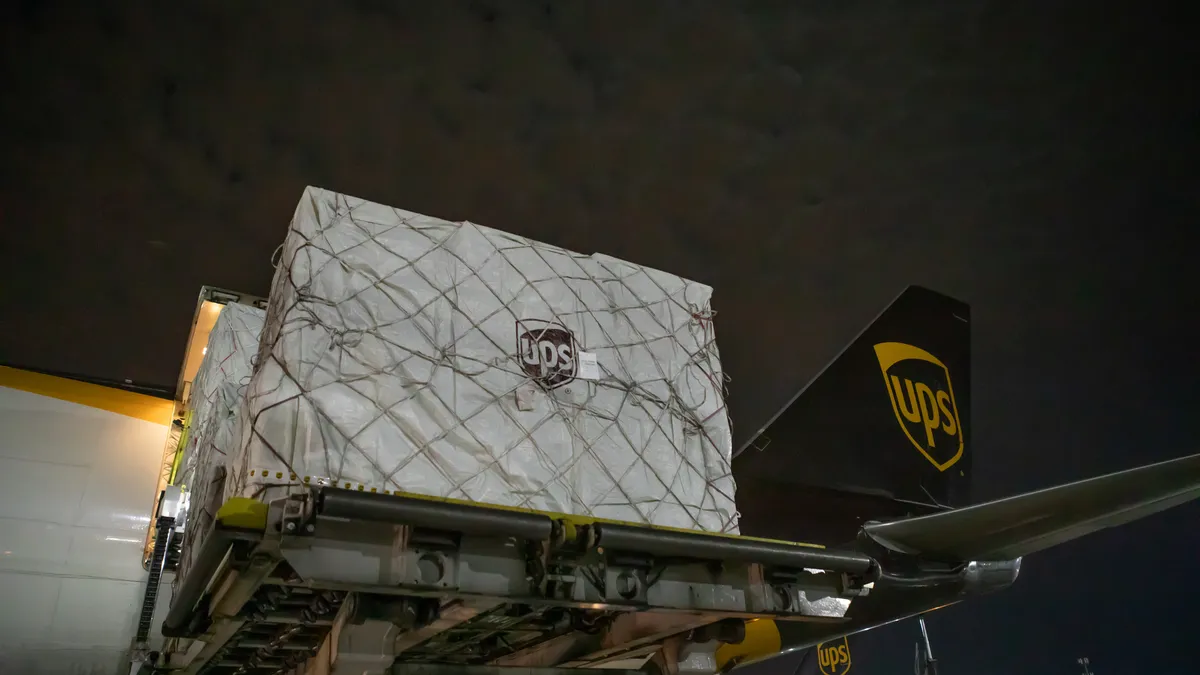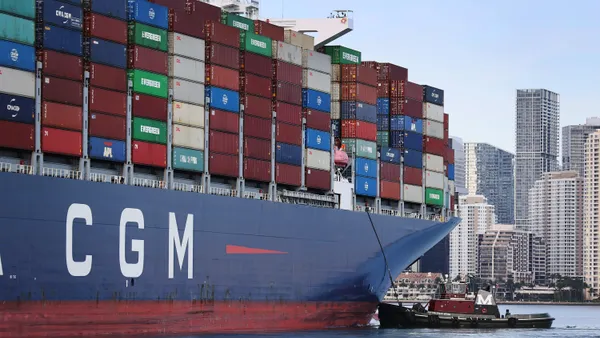Dive Brief:
- UPS' air transportation emissions increased nearly 5% in 2021, as alternatives to conventional jet fuel remain limited around the globe.
- The uptick in Scope 1 air emissions contributed to a rise in the company's carbon intensity from 2.51 kg of carbon emissions per delivered package in 2020 to 2.55 kg last year, according to UPS' most recent Global Reporting Initiative report.
- The carrier aims to cut its carbon intensity in half from 2020 levels by 2035, the same year it wants 30% of its aviation fuel to be from sustainable sources. That goal remains elusive however, as "supply remains limited and it has not reached economies of scale, making it cost prohibitive for wide adoption,” according to the report.
UPS air transportation emissions climb
Dive Insight:
The pressure is on for air cargo carriers to trim their carbon footprints as shippers look to satisfy environmentally minded consumers. While carriers have rolled out plans to better embrace sustainability, emissions have continued to climb for UPS, FedEx and DHL.
UPS has made progress in decarbonizing its ground transportation, with 8% of the mode's fuel consumption last year coming from renewable sources, according to its most recent Sustainability Accounting Standards Board report. In the air, it's a different story: None of UPS' air transport fuel consumption came from sustainable sources in 2021.
Sustainable aviation fuel (SAF) options for air cargo are lacking, but that could change as more carrier weight is thrown behind efforts to expand supply. DHL Express announced in March it reached SAF deals with BP and Neste for more than 800 million liters of SAF in the next five years, and Southwest Airlines invested in an SAF pilot project backed by the Department of Energy. UPS says it’s exploring SAF opportunities of its own.
"Over the next several years, UPS will continue to work with fuel producers, customers, and the industry to accelerate the commercial availability, scale, cost, and competitiveness shift to SAF through a number of methods, including our membership with the Sustainable Aviation Buyers Alliance (SABA)," per the company's Global Reporting Initiative report.
SABA also counts Amazon Air and United Airlines among its membership. The group aims to provide SAF education and policy support for its members and establish an SAF certificate system so carriers and their customers can meet climate goals.
The use of SAFs remains the main avenue for decarbonizing large freight aircraft flights, but there's a clearer pathway to sustainability for smaller aircraft used in regional and short-haul routes. DHL Express ordered 12 all-electric aircraft from Eviation last year, and UPS plans to purchase electric Vertical Takeoff and Landing aircraft for use in small and mid-sized markets beginning in 2024.















